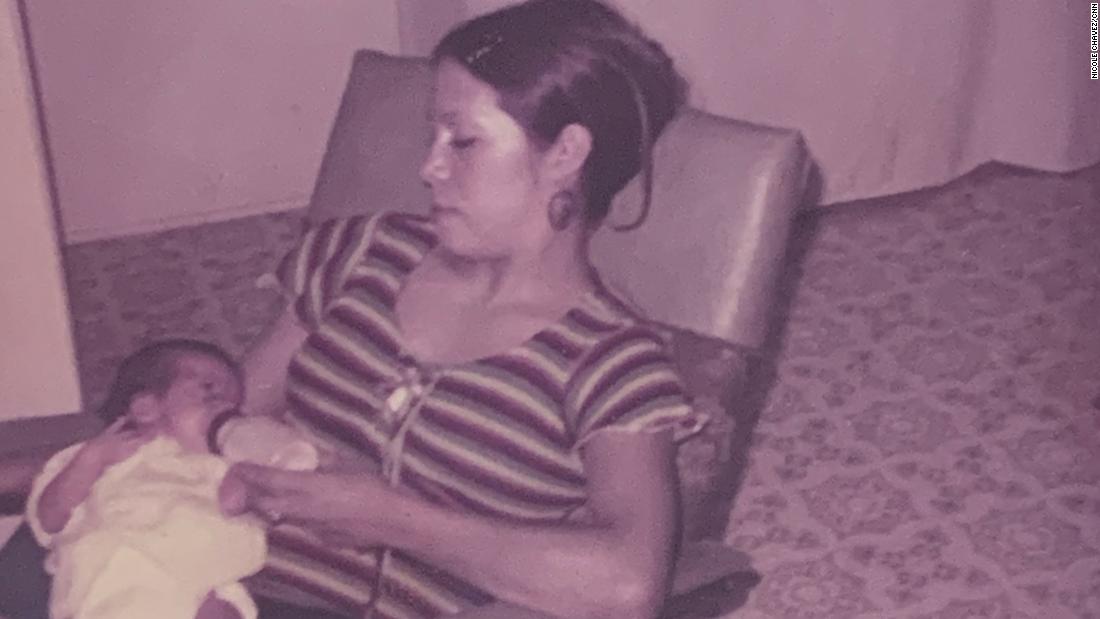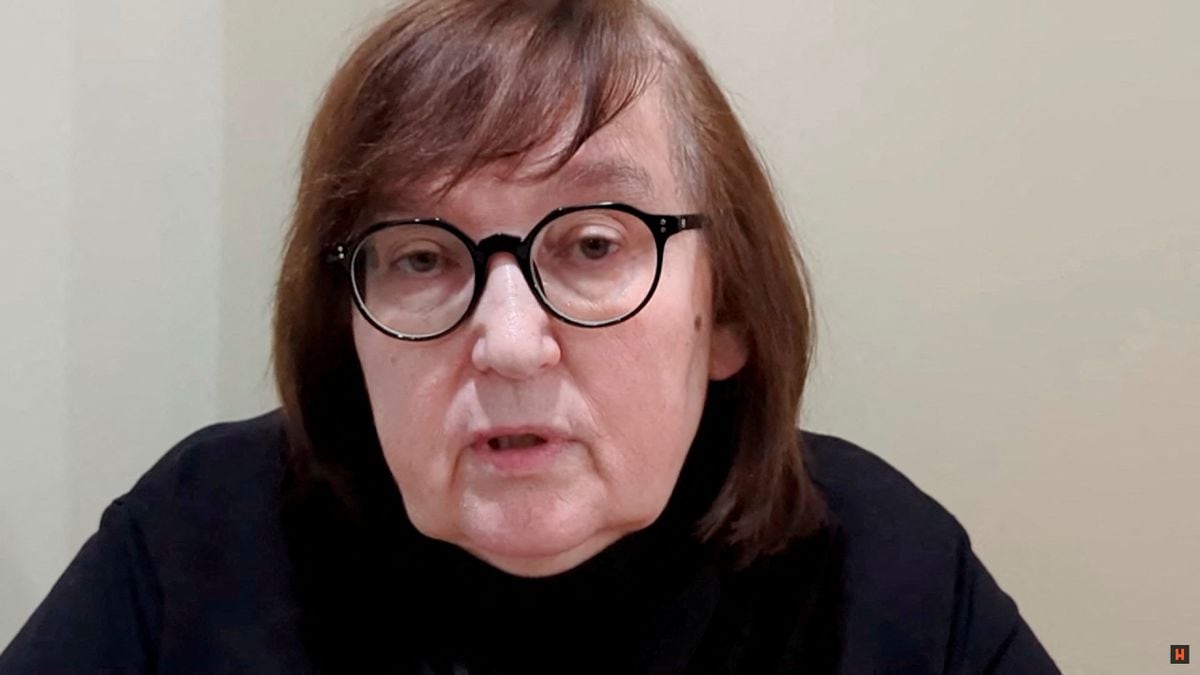Opponents of abortion in Texas take a hard hit 0:50
McAllen, Texas (CNN) -
Outside the border city of McAllen, Texas, the only abortion clinic, a debate has raged for years.
Some people pray and beg the patients not to enter, while some volunteers accompany the women to the entrance.
But none of them were there when Rosie Jiménez died just across the street more than 40 years ago.
As thousands of people marched to the Supreme Court in support of reproductive rights earlier this month, Rosie's photo was featured on banners and her name was echoed by crowds at vigils and rallies across Texas, Arizona, California and Oregon.
In McAllen, the environment was challenging.
The activists held a rally about eight blocks from the clinic across from City Hall.
The building on the edge of the busy downtown business district, where Jiménez died and likely received medical care more than four decades ago, was demolished in the early 1990s for the construction of the city hall.
Rosie was 27 years old when she contracted a fatal infection in 1977, after searching for a midwife, who was not authorized to perform abortions, to terminate her pregnancy.
He couldn't afford a doctor in South Texas and the Hyde Amendment prevented Medicaid from covering the cost of the procedure.
For decades, she has been a symbol for abortion rights advocates, inspiring them to write laws and focus their work on helping disadvantaged communities, even as one of the strictest abortion bans in Texas and the Supreme Court is about to have a direct challenge hearing of the Roe v.
Wade.
Roe vs.
Wade: the case that decriminalized abortion in the United States
In McAllen and in the Rio Grande Valley, a largely rural region of Texas where there are high levels of poverty and a large population of Mexican Americans, advocates say they want to share Rosie's story because poor people in color are often the ones who experience the dire consequences of abortion restrictions.
On one side of the McAllen abortion clinic is a vibrantly painted mural of multi-hued brunette women helping each other in a lush green field.
The light comes out of your hands.
The words "justice, compassion, empowerment and dignity" are written at the top of the mural.
advertising
The clinic serves patients from McAllen and numerous Texas counties south of San Antonio.
Many of the patients are undocumented, and a procedure in McAllen costs up to $ 800. The cost is considerably higher than in other cities, and women often struggle with added costs that include lost wages, transportation, and caring for children. the children.
On Friday night, a federal appeals court temporarily suspended a judge's order that had blocked the abortion ban after six weeks of gestation in Texas.
The US 5th Circuit Court of Appeals moved swiftly to approve Texas' request for an administrative stay of the mandate, filed Friday afternoon.
The state's move came after a U.S. district judge issued a blanket order blocking the law a few days earlier at the request of the U.S. Department of Justice, which had filed a legal appeal last month. last.
What is constant is that the ongoing legal battles do not lessen the decades-long heartache and effects of Rosie's death.
"Rosie Jiménez should still be here, but she is not because of the anti-abortion restrictions that politicians have been passing to prevent us from living the life we want," said Ana Rodríguez, campaign director for the Texas Equal Access Fund and the Lilith Fund. for Reproductive Equity.
Although Rosie has inspired many people to fight for abortion rights, her story is more personal for Monique Jiménez as it altered the course of her life.
Monique was just four years old when her mother died, and memories of those early years with her mother are rare.
When Monique turned 18, she was ready to start a new life in college, in the same place where her mother spent the last years of her life.
It was then that one of her aunts told her that it was time to finally find out something her family had hidden from her.
"Your mother died of an abortion," recalls the 48-year-old woman her aunt told her as she handed her a book with her mother's face and name on the cover.
New US Supreme Court Mandate Could Produce Landmark Rulings on Abortion, Guns, Subsidies and More
Who was Rosie?
Monique has spent years filling in the gaps with stories from family members and through her own research.
Many times he has had to disprove misinformation about his mother that has been spread by strangers over time, he says.
And he wants people to know the joy that his mother brought to his family and that she was very loved.
Rosie Jiménez was born in McAllen into a large Mexican-American family.
He had a total of 11 siblings, some of whom died at a young age, including his twin sister.
His parents were migrant workers.
As the family grew, they relied on Rosie's mother's skill in cooking and eventually opened a Mexican restaurant.
Young Rosie had a caring spirit and loved to dance.
She spent many summer days going to the beach in South Texas, enjoying dressing up in wigs and matching her outfits with different bags.
Rosie Jimenez receives her GED diploma during a ceremony in McAllen, Texas.
This is an undated photo.
Rosie had big dreams and wanted to go to college, says her daughter, Monique.
Although Rosie did not graduate from high school, she obtained her GED and attended the then Universidad Panamericana.
He was the only person among his siblings who went to college.
She dreamed of being a special education teacher, but was only in her sophomore year when she died.
"He was strong and he knew what he wanted," says Monique.
Over the years, Monique met her mother through photographs and listened to family members remember her sister, cousin, and friend.
Rosie became a single mother in her 20s.
The photos your daughter keeps in a photo album show her broad smile during her baby shower and Monique's first birthdays.
Rosie Jiménez feeds her daughter Monique, left, in an undated photo.
The year that changed everything
In September 1977, Rosie could not afford an abortion doctor and instead went to a midwife who was not authorized to perform abortions.
She decided to go to the hospital after bleeding for several days after the operation, but did not tell the nurses or doctors about the abortion at first.
"Maybe she was scared, maybe she was embarrassed, it's hard to tell what a person is going through or what their thoughts are," Monique says.
"You have to think that 77 was a different time, people were not very receptive to a single mother being pregnant."
As the days passed, Rosie got sicker.
He had an infection that spread throughout his body and his organs began to fail.
Abortion: Which US States Have the Most Restrictive Laws?
When her siblings and parents, many of whom no longer lived in the Rio Grande Valley, went to the hospital, Rosie had been intubated and her body was swollen.
He couldn't speak because of the intubation, but they realized that he wanted to tell them something.
"They gave him a piece of paper and a pen and he wrote my name on the paper," says Monique.
"They said, 'Don't worry, Rosie. We're going to take care of Monique.'
Rosie never came home to see her daughter.
She died on October 3, 1977 and was buried a few days later.
A life full of questions
Monique, who now lives in Houston, speaks very frankly about her mother.
In her mind, there is no doubt that her mother loved her.
"People have asked me this question: 'Are you angry that your mother had an abortion?" Says Monique.
"They ask me and I always say no. Why would I be? What kind of person would I be? My mother made the best decision for her at that moment."
Shortly after her mother's death, Monique was sent to live with her grandparents.
He would spend a few days at the family restaurant, where his grandmother would give him an omelette with jelly as a snack, he says.
Rosie Jiménez, right, carries her daughter Monique Jiménez, left, in an undated photo.
Other days, they went to a drive-in movie or went swimming in a park along the Rio Grande.
She was never lonely, she says, because she had many cousins.
Later, the family moved to Harris County in East Texas, where most of their mother's siblings had relocated.
Family members began to notice that Monique looked like her mother and acted like one, mostly because she always wanted to help others.
"If I had $ 5 in my pocket, I would give it to you no questions asked if you needed it," Monique says.
During all those years, no family member went into details about how and why Rosie had died.
Monique says that she and her grandparents always visited her mother's grave when the family visited other relatives in McAllen, but they never talked about how Rosie died.
Monique did realize that her grandparents never discussed sex or abortion with her.
When Monique found out how her mother had died, it was too late.
His grandparents were gone.
"There are question marks for everything," says Monique.
"I only have the things that I have learned in my life, or just from people, like my aunts. That's all I have. I have nothing else."
"It could be any of us"
Melissa Arjona believes that if Rosie Jiménez had been several decades younger and needed an abortion more recently, she could have helped her.
The Whole Woman's Health clinic in McAllen, Texas is the only abortion facility south of San Antonio.
"She was right there, if it had been possible for her to get help. She would have had a safe abortion, she would still be alive," said Arjona, founder of South Texans for Reproductive Justice (STRJ), a group that used to run a volunteer program for accompanying patients to the clinic and currently providing free emergency contraception.
Arjona, 40, was volunteering as a chaperone at the Whole Woman's Health clinic about eight years ago when she first heard Rosie's story.
He was surprised that the young woman had lived and died in her hometown.
Since then, STRJ has organized different events to honor Rosie's life and visit her grave to clean her and bring her roses.
"It could be any of us, so it stuck with us," Arjona said.
Several abortion rights groups, including Frontera Fund, Lilith Fund, and South Texans for Reproductive Justice, held a call to action rally in McAllen, Texas on October 2.
McAllen has been a battleground for women's reproductive rights for years, in part because of the region's strong ties to Catholicism and because abortion is considered taboo within the Latino community.
The debate has intensified in the last decade, as state lawmakers have enacted various abortion restrictions and protesters from both sides have gathered in front of the McAllen clinic.
Recently, several members of a coalition of abortion rights groups demonstrated at a busy intersection holding a twenty-foot-long sign that read "abortion is health care."
They cheered and raised their fists when drivers gave them thumbs up, honked their horns, and girls waved.
And when drivers rolled down their windows to insult and signal, they just chanted louder.
"Abortion yes, abortion no, that's for me to decide," they said in Spanish.
Abortion is even more restricted now
More than 40 years after Rosie's death, a federal provision related to her death remains a point of contention across the country.
Last month, West Virginia Senator Joe Manchin, a crucial Democratic Senate vote of 50-50, said the inclusion of the Hyde Amendment would be necessary for President Joe Biden's massive economic plan to have his support.
Meanwhile, some top Democrats have told CNN that they will not vote in favor of the bill if the provision is included.
The Hyde Amendment officially went into effect in 1977 and blocks the use of federal funds for most abortions, except in cases of rape, incest, or when a woman's life is in danger.
The Hyde Amendment is not a permanent law and only applies to the spending bill in which it is inserted.
In 2019, Biden came out against the Hyde Amendment during the Democratic primary, reversing his long-standing support for the measure.
In Texas, state lawmakers introduced legislation in Rosie's name during the last two sessions, but her efforts have been overshadowed by high-profile anti-abortion bills.
The initiative was referred to the Health and Human Services commission for its consideration.
Appeals court temporarily suspends judge's order blocking abortion ban for six weeks in Texas
Ana Rodríguez talks about Rosie Jiménez during an October 2 rally in McAllen, Texas.
She is the campaign manager for the Texas Equal Access Fund and the Lilith Fund for Reproductive Equity.
Rosie's Law, the bill sponsored by Texas Democratic Rep. Sheryl Cole and State Senator Sarah Eckhardt, aims to clear the way for patients to use their Medicaid and private insurance to pay for abortion procedures, a challenge. that Rosie faced decades ago.
"Rosie was only 27 years old and died of an unsafe abortion. And that was just avoidable. Medicare should cover it," Cole told CNN.
Leaders of the abortion fund in Texas crafted the legislation after seeing many of their clients seeking help because they couldn't use their insurance to pay for abortion care and couldn't pay for it out of pocket, Rodriguez says.
"But the reality is that now, in 2021, abortion is more restricted than when Rosie died," says Rodriguez, who is also the legislative campaign coordinator for Rosie's Law.
What is the Texas abortion ban about and why is it important?
Monique is proud that her mother's story resonates with so many people, but says the state is backsliding when it comes to abortion rights.
The abortion ban in Texas is an example of how restrictions are tougher than those in place in the late 1970s, he says.
"After 44 years, haven't we learned from the past not to make the same mistakes and do something better?" Says Monique.
About a dozen roses rest on Rosie Jiménez's grave at the historic La Piedad Cemetery in McAllen, Texas, on October 2.
A day before the anniversary of Rosie's death, a dozen fresh red roses lie on her grave in the historic La Piedad cemetery.
His grave, along with that of his grandmother and one of his uncles, has weathered the Texas heat and decades of changes threatening the cemetery, including the expansion of the McAllen airport and its runway, which is only a few minutes away. meters away.
Hundreds of miles away in Houston, Monique says none of her relatives left roses on her mother's grave, but is grateful to those who did visit the cemetery on the anniversary of her death.
Nowadays, she may only visit the place during the holidays, but there are many other things that help her feel closer to her mother.
Monique studied special education, cooks the minced meat and vegetable soup her mother made for her when she was little, and has a 5-year-old daughter.
When the time comes, Monique says, her daughter will know all about Rosie Jiménez and the movement she's still a part of.
And maybe they'll go together to a protest for abortion rights.
"My daughter is going to know about her. I want her to meet her grandmother," Monique says.
Abortion in TexasTexas











